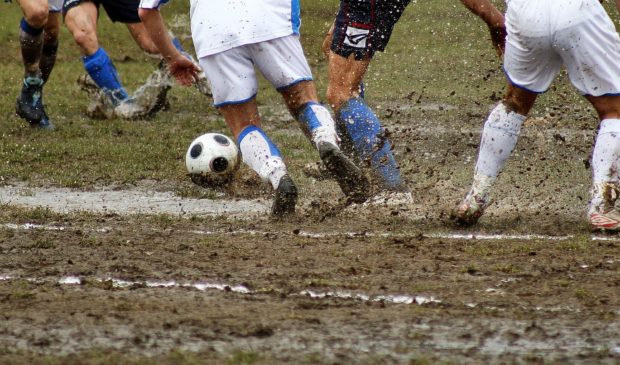Certified petition brings more questions on soccer stadium
Tuesday, February 12, 2019 by
Chad Swiatecki The city of Austin has certified the petition circulated by residents opposed to a planned soccer stadium that would be built on city-owned property.
The petition drive began last year and was pushed by a group known as Friends of McKalla Place, named for the 24-acre parcel that is the site where the city and those backing a professional soccer team reached a deal to build the 20,000-seat stadium. The group is seeking a public referendum vote on a possible city ordinance that would require the use of city property for a stadium or other venue to be approved by voters.
In a public statement, the group celebrated the certification of the petition’s 29,000 signatures, but made no mention of when the called-for election can be held.
“As neighbors, we have concerns about the proposed stadium’s impact on traffic, noise and the environment,” group member Francoise Luca said in the statement. “All Austinites should be concerned about the property tax breaks being offered to the stadium’s billionaire because it robs our schools, social services of hundreds of millions of dollars in funding. Austinites already pay some of the highest property taxes in the state, and we can’t afford to give a billionaire a free ride.”
The city charter’s language concerning referendum elections calls for a 180-day waiting period between one such election and the next. Friends of McKalla Place has pushed for the question to appear in the May 2019 election, which because of a calendar quirk is inside of the 180-day cooling-off period following the November 2018 general election. If that ruling by city staff holds, the earliest the question could go to voters would be November, by which time the stadium group hopes to have begun construction to make a planned spring 2021 opening.
Another anti-stadium advocacy group calling itself Fair Play Austin pushed harder on the certification news, calling for City Council to directly approve the proposed ordinance.
“Austin residents and locally owned businesses already pay some of the highest property taxes in the state,” said group spokesman Chris Lippincott. “Those taxes have forced Austin icons like Threadgill’s, the Frisco Shop and the East Side Cafe to relocate or close their doors forever.
So if we are being asked to give hundreds of millions of dollars in property-tax breaks to an out-of-state billionaire’s for-profit venture, then we deserve an opportunity to approve the deal at the ballot box.”
The lease deal between the city and soccer backers Precourt Sports Ventures grants a 20-year lease on the property, with the team financing stadium construction and paying $8.5 million total in rent. The sticking point for many is the team’s move to give ownership of the stadium to the city after completion, to avoid property tax expenses that would come with the improvement.
The team has filed site plan paperwork with the city and taken other steps to begin stadium construction. In a prepared statement, representatives said the petition drive won’t affect a completed lease agreement.
Council Member Leslie Pool said she supports petition drives on the part of citizens and said there is some question of whether the ballot initiatives from the November election qualified as special referendum measures that would trigger the 180-day waiting period.
“This petition follows the same principle that I’ve stood by consistently … and if a stadium is going to be built here, then I want it to be done right,” she said. “I will work to ensure that information about the stadium flows timely and accurately to the community and that all parties are kept informed.
“The flash point (is) whether the bond election was a ‘special’ or a ‘general’ election. That status governs whether the 180-day separation of two elections that is in state statute applies. City says the bond election was a special election; petition supporters say the November election was a general election.”
The Austin Monitor’s work is made possible by donations from the community. Though our reporting covers donors from time to time, we are careful to keep business and editorial efforts separate while maintaining transparency. A complete list of donors is available here, and our code of ethics is explained here.
You're a community leader
And we’re honored you look to us for serious, in-depth news. You know a strong community needs local and dedicated watchdog reporting. We’re here for you and that won’t change. Now will you take the powerful next step and support our nonprofit news organization?








